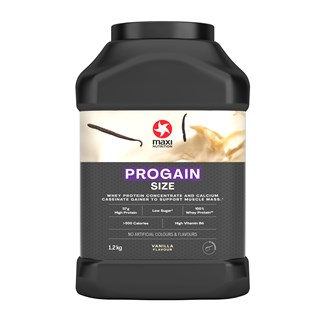If we are really honest, what you eat when bulking comes second to how much you eat. What I mean by this, is that your calorie intake is far more important than what you choose to eat to make up those calories. Put it this way. If I wrote a list below of the top 10 foods for bulking and you only ate those foods yet weren’t in a calorie surplus for your needs, you would not bulk. The most important thing is to work out how many calories you need (link to Bulking Calories article) and meeting that need on a daily basis, while following a progressive, intense, well planned training programme.
Despite saying that, there are certain types of food that can help when bulking, specifically in regards to calorie consumption. A common theme I have come across when helping people with a bulk, is that they struggle to ingest enough food. They literally struggle to eat enough. You may laugh and think this wouldn’t be problem for you, but remember everyone is different. Most people requiring a bulk probably don’t eat enough and kid themselves that they do. Therefore, eating enough food to hit their calorie quota can be a real problem. That is where the following tips and ideas can help.
1. Drink your Calories
This doesn’t have to be supplements, though they can help. It can be any form of shake/smoothie that allows more calories to be ingested when you just can’t face another chicken breast. A NutriBullet or the like can allow you to blend up fruits, fats and protein to get in a large amount of calories and macronutrients to help hit the targets. Even a glass of full fat milk has a large amount of fats, proteins and carbs so can be really useful for getting the calories in.
2. Avocado
Going hand in hand with the above, as you can blend these up to add more calories and loads of nutrients to a smoothie. They are also great with a salad or on the side of any dish. If you’re not aware, avocados are very high in fat. Fat is 9 kcal per gram as opposed to proteins and carbs which are 4 kcal per gram. Therefore, any high fat food will help with a bulk in terms of ingesting more calories, more bang for your buck, so to speak. Avocado is definitely one to eat daily when bulking as it is so nutrient dense as well as being calorie dense.
3. Nuts
Each nut has its own profile in terms of protein, fat and carb make-up. However, as a rule of thumb, they all pack a pretty calorific punch for such a small food type. This is largely because each one has a high fat content. For the same reasons as explained above, this means more calories which can help with a bulk if you are struggling to eat enough food. The great thing about nuts is that they are easily transported and can be eaten pretty much anywhere.
4. Fruit
Fruit is often something gym users are careful of due to the high natural sugar content. Fruit in general contains a lot of calories. It also contains a lot of nutrients; foods we know as calorie dense and nutrient dense. As opposed to foods that would be calorie dense and nutrient low, like sweets (gummy bears, skittles etc). Fruit is great to add calories for a bulk because of all the natural vitamins and minerals that help with health and many other bodily functions.
5. Dairy
Mentioned in point one, milk is a really useful source of calories for bulking. Going back 40 years to the bodybuilders of the 70s, this was their whey protein. Their post workout shake. After all, milk contains two protein types: whey and casein, as well as fats and carbs, making milk a great addition when bulking. Cheese, in particular cottage cheese, is high protein and high fat, so also useful for bulking by adding excess calories while still providing a good source of protein which fruit/avocado etc don’t. Even a ball of mozzarella has gained in popularity as a great addition to a meal or even a clever snack if out and about and stuck for something to eat. Yoghurt is also a great source of calories, especially when full fat. Avoid the low fat, high sugar versions though. Even though they will provide lots of calories while tasting nice, the calories are empty in terms of nutrients. It’s far better to have natural yoghurt with a bit more fat and eat it with real fruit for nutrient dense calories that are also naturally sweet.
6. Protein bars
Love them or hate them, protein bars serve a purpose. If you have a sweet tooth and often look at the confectionary isle and think of diving in, a protein bar can be a good addition to the arsenal. The “bulking” bars that provide extra calories as well as a high dose of protein can be really useful to avoid making the wrong choice in an unhealthy alternative. One in the bottom of the bag or desk drawer can be really useful when the day takes an abnormal twist and you need a high calorie, easy to eat, high protein snack.
7. Things you like
One of the biggest parts of getting a bulk right, is to make sure you eat regularly. If you miss meals, you’ll struggle to catch up later in the day as you may not be able to ingest enough calories. Therefore, it’s imperative you choose foods you like. If you do that, you are more likely to eat them and stay on track with your bulk. This isn’t (or shouldn't be) carte blanche to eat only ice cream and doughnuts. You should pay attention to your macros and invest in calorie and nutrient dense foods; however, ensuring you will eat enough calories is still paramount above all else when on a bulk.
There you have it, seven tips to help with a bulk. Remember, overall calories are most important. Ensure you do ingest enough food throughout the day. However, macronutrient breakdown and nutrient dense foods vs nutrient low foods does have an effect on health and body composition. Try not to eat too much saturated fat (but don’t avoid it). Ensure you get enough protein and aim to ingest carbs that will provide good sources of vitamins and minerals.














